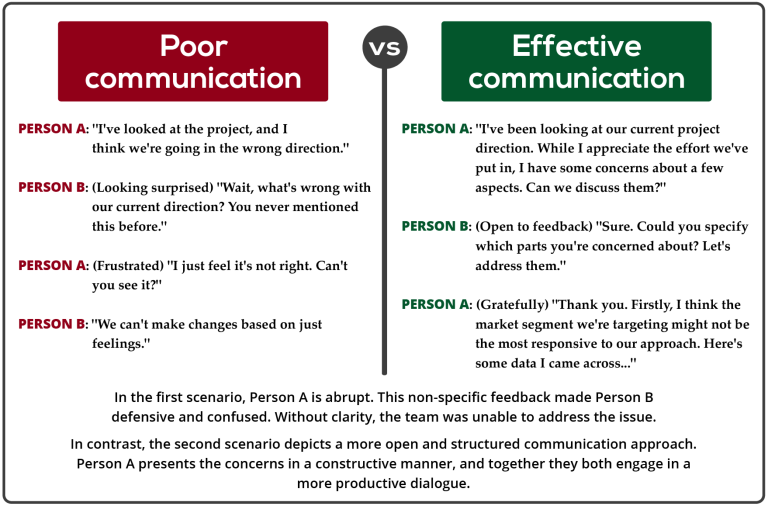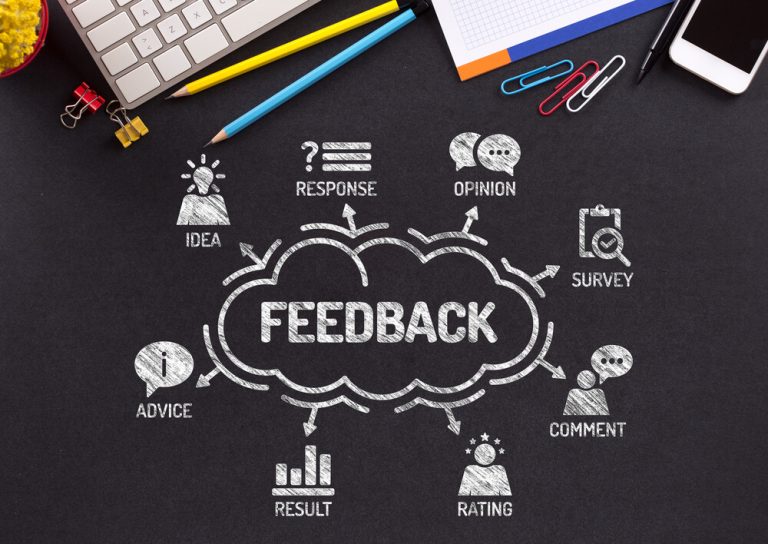
In today’s fast-paced world, effective communication is the backbone of success. Whether it’s a team meeting, a client presentation or just day-to-day interaction with colleagues, clear communication can make or break your progress.
Before we dive into ways to improve your communication let’s look at an example of poor vs effective communication.

Very often we are so focused on responding that we fail to listen. A listener helps sharpen the speaker’s thoughts, fills gaps and reduces space for assumptions. So, you are adding value to the exchange by listening too.
Here’s how to do it: Paraphrase the speaker’s thoughts rather than focusing on your own thoughts, “So you’re saying you would not prefer emails or calls post 6 PM” and ask questions, they’ll help both of you get the most out of the conversation.

build a system that offers it first. Explore our wellbeing programs →

Reading the room is crucial when you communicate. Body language and facial expressions say a lot more than words sometimes.
Here’s how to do it: Look out for yawns, constant fidgeting, which are indicators that your audience does not have your attention. Include them in the conversation, ask them if they have something to share or if something is on their mind. Reiterate what you were saying, in case they missed it. When you’re listening; nodding, maintaining eye contact or simply leaning in will show that you are engaged.
Not sure if they understood? Ask! “Any questions?” “Does this make sense?” “Is there anything you would like to add?” This can improve retention, minimise misunderstandings and boost your confidence as a speaker.
Here’s how to do it: Whenever you ask for feedback, be as specific as possible. Broad questions such as “How are my reports?” will most likely receive general answers. You’ll get better feedback by asking specific questions such as “Have my weekly reports been as thorough as you want them to be?”


Texting has become an important means of business communication, due to the shift to hybrid and remote working styles.
Here’s how to do it:
When expressing your thoughts or concerns, use “I” statements instead of blaming or accusing language. This helps convey your feelings and needs without placing blame on the other person.
Example:
‘You’ statement: You don’t care about me or my feelings.
‘I’ statement: I feel frustrated when my feelings aren’t heard or acknowledged.
One of the fundamental aspects of effective communication is carefully considering our words before uttering them. Often, the heat of the moment or impulsive reactions can lead to disagreements and disputes and can damage relationships.
Here’s how to do it:
Take a moment to gather your thoughts, consider the impact of your words and respond with thoughtfulness and empathy. Know that your words can make things better or worse in a relationship.


And there we go! Armed with these tips, you’re all set to leave a lasting impact with your words, no matter where you’re working from. Remember, it’s not just about speaking; it’s about making meaningful connections.

Talk to our team
© 2025 Happizest, a division of Happiest Health. All rights reserved. | Privacy Policy | Disclamier